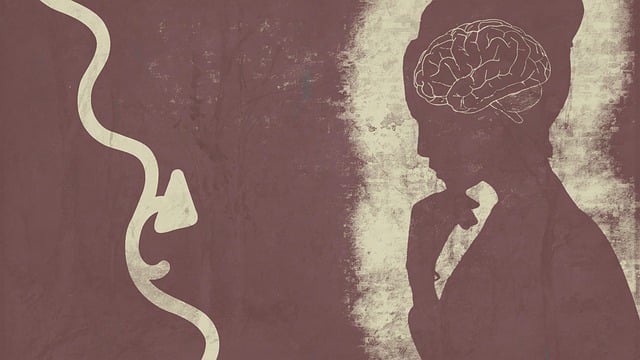Centennial Christian Counseling Therapy (CCCT) prioritizes client safety through a multi-faceted risk assessment process. They evaluate past traumas, suicidal ideation, substance abuse, and aggressive behaviors using evidence-based methods. This information informs personalized treatment plans incorporating strategies like Social Skills Training and Emotional Healing Processes in a nurturing environment. CCCT also focuses on proactive risk management, training staff to identify early warning signs and providing therapists with stress reduction practices. Clients are empowered through mental wellness journaling exercises for enhanced self-reflection and emotional regulation.
“At Centennial Christian Counseling Therapy, we recognize that risk assessment is a cornerstone of effective mental health practice. This article delves into the essential process of evaluating potential risks and hazards within our counseling environment. By understanding the unique challenges faced by both clients and counselors, we implement robust strategies for risk management and mitigation. Discover how Centennial Christian Counseling Therapy navigates these critical aspects, ensuring a safe and supportive therapeutic landscape for all.”
- Understanding Risk Assessment in Mental Health Practice at Centennial Christian Counseling Therapy
- Identifying Potential Risks and Hazards for Clients and Counselors
- Strategies for Effective Risk Management and Mitigation at Centennial Christian Counseling Therapy
Understanding Risk Assessment in Mental Health Practice at Centennial Christian Counseling Therapy

At Centennial Christian Counseling Therapy, we understand that risk assessment is a cornerstone of mental health practice. It involves meticulously evaluating and understanding the potential risks and hazards that our clients may face or exhibit, allowing us to implement tailored interventions and support systems. Our approach prioritizes both client safety and effective therapy delivery by integrating comprehensive risk assessment tools into every session.
By leveraging evidence-based methods, we assess a wide range of factors, including past traumas, suicidal ideation, substance abuse, and aggressive behaviors. This process guides us in designing personalized treatment plans that incorporate strategies such as Social Skills Training, Empathy Building Strategies, and Emotional Healing Processes. At Centennial Christian Counseling Therapy, we are committed to fostering a safe and nurturing environment where clients can heal and thrive.
Identifying Potential Risks and Hazards for Clients and Counselors

Identifying potential risks and hazards is a cornerstone of any comprehensive risk assessment for mental health professionals at Centennial Christian Counseling Therapy. This process involves meticulously evaluating various factors that could negatively impact both clients and counselors. Risks can manifest in diverse ways, from interpersonal dynamics to systemic issues within the broader mental healthcare landscape. For instance, counselors may encounter clients facing challenges related to trauma, substance abuse, or severe psychiatric disorders. Additionally, cultural sensitivity in mental healthcare practice plays a crucial role; counselors must be attuned to the unique cultural backgrounds and beliefs of their clients, ensuring that interventions are not only effective but also respectful and inclusive.
Beyond individual client risks, it’s essential to consider broader hazards within the mental health care system itself. Crisis intervention guidance is a critical component, as counselors may need to navigate sudden, intense crises with limited time for thorough assessments. Moreover, advocating for clients through mental health policy analysis can help mitigate systemic risks by pushing for policies that prioritize access, quality, and safety in counseling services. By proactively identifying these risks and hazards, Centennial Christian Counseling Therapy ensures a safer, more supportive environment for both its counselors and the diverse range of clients they serve.
Strategies for Effective Risk Management and Mitigation at Centennial Christian Counseling Therapy

At Centennial Christian Counseling Therapy, we prioritize risk management and mitigation as a cornerstone of our mental health services. Our strategies are multifaceted, focusing on both proactive and reactive measures to ensure client safety and well-being. We foster a culture of resilience building through regular staff training in identifying and addressing potential risks, including recognizing early warning signs of distress among clients. This involves equipping therapists with the latest evidence-based practices for stress reduction methods, enabling them to provide timely interventions.
Additionally, we encourage clients to engage in mental wellness journaling exercises guidance as a powerful tool for self-reflection and emotional regulation. This practice allows individuals to track their thoughts, feelings, and behaviors, thereby fostering awareness and promoting proactive coping strategies. By integrating these approaches, Centennial Christian Counseling Therapy aims to create a supportive environment that not only minimizes risks but also empowers clients with the skills necessary for long-term mental wellness.
Centennial Christian Counseling Therapy (CCCT) prioritizes comprehensive risk assessment as a cornerstone of its mental health practice. By understanding potential risks and hazards, CCCT employs strategic management techniques to ensure a safe and supportive environment for both clients and counselors. Through ongoing training and implementation of evidence-based practices, the organization continues to enhance its risk mitigation strategies, upholding its commitment to exceptional care and positive outcomes for all.














